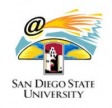Data-based decision making | Technical | Cognitive | Communication | Interpersonal | Principles, Theories & Models | Processes | Systems
Data-based decision making: Docent Improvement Plan for San Diego Museum of Man (ED 795A, group project)
Context
Our semester-long group project for ED 795A Seminar assisted the San Diego Museum of Man (SDMoM) in improving their docent program. I worked with Melissa Hughes, Mario Jacquez, and Karen McKelvey on a team that communicated primarily with Teri Saffon, Education Specialist & Educational Events Manager for SDMoM. The Museum wanted to recruit and retain 125 docent volunteers, but they only had about twenty-five, about half of whom were active, regular volunteers. We believed that surveying current and former docents could shed some light on the obstacles SDMoM might address to increase their docent pool.
Standard -- Data-based decision-making: Value the use of data as the starting point for professional work.
Our data took several forms. First, we interviewed Teri Saffon about how the Museum uses docents and the benefits of being a docent. We also located and interviewed experts from similar museums in Pennsylvania and Florida, as well as the Regional Director for the American Association for Museum Volunteers Western Region. Finally, we used SurveyMonkey to gather specific information about docent demographics, how the Museum uses and communicates with docents, and why people volunteer (or have ceased to volunteer) as docents. Some of the survey results were expected, while others surprised us. All the data informed our report for Ms. Saffon and SDMoM.
Opportunities Disguised as Problems
The most obvious issue we faced was difficulty in communicating with both the San Diego Museum of Man staff, who are spread rather thin, and their docent staff. When Melissa Hughes went to the Museum to attend a meeting with docents, it was barely attended, which underscored the struggle the Museum also has in their communication with their own docents. Melissa took this opportunity to shoot some pictures and video of the Museum to share with the rest of us, as we are located throughout the state. When we obtained e-mail addresses for the current and former docents, the list only contained 41 addresses. Worse yet, only 14 of those docents actually completed our survey. This was revealing in itself, but the survey data were also valuable in highlighting some issues the docents perceived.
My Strengths
I helped design and revise our survey, especially the skip logic, and I communicated with Deirdre Araujo, who shared with us a lot about the docent programs at several organizations. When we met with our professor, Marcie Bober-Michel, about our docent survey, she had several suggestions for changes and revisions. Karen McKelvey focused on the content while I focused on building in the logic for the different pathways a respondent would follow, depending on how he or she answered specific questions. The respondent would not be aware of the survey's structure, but the sequence and content of questions varies based on certain responses. I enjoy communicating, and I enjoy crafting a tool that gets the job done precisely, which in this case was collecting the most useful information from current and former docents.
What I Learned About Myself in Educational Technology
I learned that simply gathering a few pieces of data can totally change the outcome of a project, and that I need to be more open to soliciting this kind of feedback in my work. When we started our investigation into SDMoM's docent program, we made a few early conclusions based on what little we knew at the start. But once we heard back from even a small number of docents, we had new insights that focused our efforts in some new directions. During this project, and since that time, I have been gathering data from my students and colleagues to learn more about their experiences during certain projects or related to our school's technology resources, and it has been an eye-opening and helpful experience.
Artifact Link: http://files.me.com/dianemain/fnkddz (32MB, ZIP file)
Rossett, A. (2009). First things fast. San Francisco, CA: Pfeiffer.

